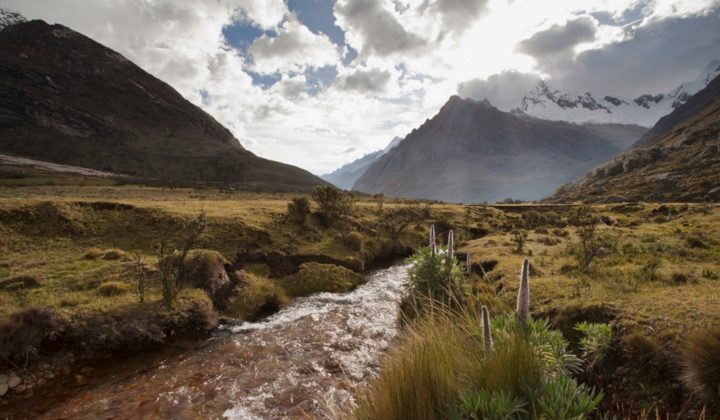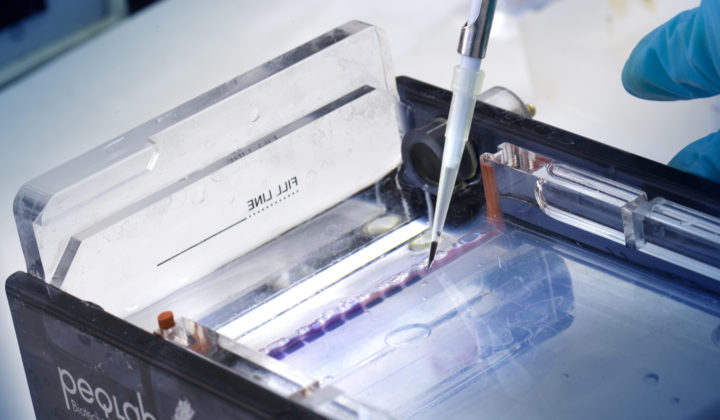
Leitung

My main research interest is to understand the distribution of life on earth (e.g. species, biodiversity, vegetation types, ecosystems) through space and time. I am particularly interested in interactions between climate and the terrestrial biosphere. This includes potential impacts of climate change on species, ecosystems and associated ecosystem services, as well as the role of the biosphere in the earth climate system (e.g. carbon and water cycling). Methodologically, vegetation and ecosystem modelling at local to global scales has been at the core of my work.
Examples of current projects:
- GEOEssential
- EarthShape: Earth Surface Shaping by Biota
- Ecosystem Management Support for Climate Change in Southern Africa (EMSAfrica)
- The open Climate Impacts Encyclopedia (ISIpedia)
- Past warm periods as natural analogues of our „high CO2“ climate future (VeWA Project)
- Environmental changes in biodiversity hotspot ecosystems of South Ecuador: RESPonse and feedback effECTs (FOR2730)
- Fire in the Future: Interactions with Ecosystems and Society – FURNACES
- Multisectoral analysis of climate and land use change impacts on pollinators, plant diversity and crops yields – MAPPY
- BioDiv-Support: Scenario-based decision support for policy planning and adaptation to future changes in biodiversity and ecosystem services
Examples of environmental impact assessments:
- IPBES-IPCC Co-Sponsored Workshop Report on Biodiversity and Climate Change
- Global Assessment Report on Biodiversity and Ecosystem Services (Chapter 5)
- IPBES Scenarios and Models Assessment
- North Sea Region Climate Change Assessment (NOSCCA, chapter Terrestrial Ecosystems)
BSc. and MSc. topics (‚Abschlussarbeiten‘)
For international publications and peer-reviewed published papers, see my profile on Google Scholar or my Web of Science Researcher ID S-6287-2016
For further publications, e.g. IPBES assessments, see Further publications (pdf)
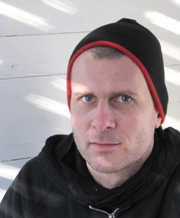
Research interests
• Metadata applications describing biological/biodiversity data
• Integrative models using this data
• High-performance computing in context of computational biology
Short CV
2005 – 2010 Software developer, Senckenberg Library & HRZ Goethe University
2004 Dr.phil.nat, J.W.Goethe University Frankfurt
1998 – 2002 Research Assistant at Dept. Of Cell Biology & Neu-roscience JWG
1997 Diploma in Biology, J.W.Goethe University Frankfurt
Selected Publications
Weiland, C. Über Zeitverarbeitung in der MSO. Modellierung der neuronalen Prozesse in der Medialen Superioren Olive. PhD thesis Johann Wolfgang Goethe University, Frankfurt 2004
Weiland, C. A Multi-Threaded Solver for Auditory Computations in the MSO. Proceedings of the First Congress of Alps Adria Acoustics Association, pp. 607-610, Portoroz 2003.
Weiland, C. A Network Model for the Functional Architecture of the Mammalian Medial Superior Olivary Nucleus. J. Acoust. Soc. Am. 105, 1999.
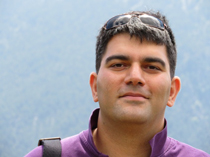
Research interests
Fascinated by diversity and dynamics of life on Earth, my current work mainly focuses on spatiotemporal predictive distribution models, application of earth observation in biodiversity and ecosystem studies, and open geo-information tools for to support science-policy interactions. I am interested to understand global patterns of life and the associated underlying drivers. I, therefore, extensively develop spatio-temporal models and improve their performance and reliability in particular applications.
Main Projects
IPBES, Intergovernmental Science-Policy Platform on Biodiversity and Ecosystem Services, is an independent intergovernmental body, established by member States in 2012. It provides policymakers with objective scientific assessments about the state of knowledge regarding the planet’s biodiversity, ecosystems and the benefits they provide to people, as well as the tools and methods to protect and sustainably use these vital natural assets. IPBES mission is to strengthen knowledge foundations for better policy through science, for the conservation and sustainable use of biodiversity, long-term human well-being and sustainable development. For more information visit www.ipbes.net
GEOEssential, Variables Workflows for Resource Efficiency and Environmental Management, is one of the four ERA-Planet projects, supported by the EU Horizon 2020 Programme. GEOEssential aims to strengthen the European Research Area by evaluating existing structures and platforms, and by providing new applications in the field of Earth Observation (EO) to monitor the progresses in environmental conditions towards policy targets. It will create cross-thematic workflows to evaluate, predict and monitor natural resources with Earth Observation tools, in particular in relation to the UN Sustainable Development Goals (SDGs), IPBES, and the Convention on Biological Diversity (CBD). Our institute leads the biodiversity and ecosystem functioning work package. In close collaboration with other institutes, this work package will map the relevant data landscape and institutions, develop specific workflows for indicators, evaluate the application of EO products to inform dynamic models, review the exiting policy and reporting needs, and finally transfer the annotated processing services and workflows for biodiversity and ecosystem functioning and services to the GEOEssential project dashboard. For more information visit www.geoessential.eu
External Links
List of my publications on Google Scholar
Follow me on Twitter @AidinNiamir
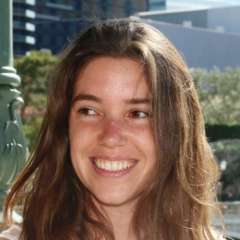
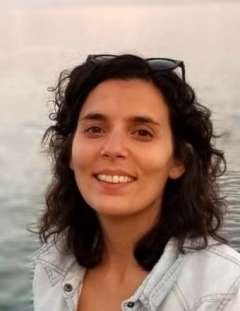
04/2018-11/2021 GFBio
12/2021 Scientific Data Curator SGN
Assoziierte Wissenschaftler*innen

Biodiversity Information Coordinator (Marine Zoology, SGN Frankfurt)
Datenmanager Ozean-Biogeographisches Informationssystem (OBIS), Tiefseeknoten, UNESCO
Vorsitz: Data Quality Control Task Team, OBIS
Forschungsinteressen
Ich bin daran interessiert, die treibenden Faktoren (ökologischer und evolutionärer Prozess) zu verstehen, die die Muster der biologischen Vielfalt und die Biogeographie in marinen Arten (Flach- und Tiefsee) mit Hilfe großer Datenmengen formen. Darüber hinaus bin ich daran interessiert, vorherzusagen, wie sich diese Muster der biologischen Vielfalt und die Verbreitungsgebiete der Arten unter dem künftigen Klimawandel verändern werden. Ich bin auch der Datenmanager für OBIS (Ocean Biogeographic Information System) Tiefseeknotenpunkte bei der UNESCO, spezialisiert auf die Verwaltung großer Datensätze, Biodiversitäts-Datenstandards und Qualitätskontrollaufgaben. Zur Durchführung meiner Forschung verwende ich verschiedene Fertigkeiten und wende verschiedene Methoden und Techniken an, wie z.B. Taxonomie (Morphologie und Molekularbiologie), Phylogenie, Biogeographie, Verwaltung großer Datenmengen, Biodiversitätsinformatik, Makroökologie sowie Modellierung der Artenverteilung und ökologische Modellierung.
Gegenwärtig leite ich Projekte in den Bereichen Digitalisierung von Museumssammlungen, Biogeographie, Biodiversitätsinformatik unter Verwendung von Großdaten auf regionaler (z.B. NW-Pazifik) und globaler Ebene. Ich arbeite auch für wissenschaftspolitische zwischenstaatliche Gremien wie IPBES (Intergovernmental Science-Policy Platform on Biodiversity and Ecosystem Services), um grundlegende Informationen für Biodiversitäts-Bewertungsberichte als Reaktion auf politische Entscheidungsträger bereitzustellen, um den globalen Status der biologischen Vielfalt in den Weltmeeren besser zu verstehen und folglich effizientere strategische Managementpläne zur Erhaltung der biologischen Vielfalt der Ozeane aufzustellen.
Aktuelle Forschungsprojekte
– Biogeographie der Tiefseefauna des NW-Pazifiks und ihre möglichen zukünftigen Invasionen in den Arktischen Ozean (Benefizprojekt)
– Abschätzung der zukünftigen globalen Verlagerungsmuster von Flachwasser- und Tiefsee-Krebsen
– Biodiversität und Biogeographie der Muscheln entlang des NW-Pazifiks und des Arktischen Ozeans
– Biodiversität und zukünftige Verteilung von Korallen entlang des NW-Pazifiks und des Arktischen Ozeans
– Biogeographie des marinen Artenreichtums und Auswirkungen des Klimawandels
– IPBES thematische Bewertung von invasiven gebietsfremden Arten und deren Bekämpfung
Gelegenheiten für Studenten
Verschiedene Forschungsprojekte für Postdocs, Doktoranden, MSc- und BSc-Studenten sowie für Kurzpraktika stehen dieses Jahr und das ganze Jahr über zur Verfügung. Diese Möglichkeiten liegen vor allem in den Bereichen Biogeographie, Ökologie, Biodiversitätsinformatik und ökologische Modellierung. Weitere Postdoc- und PhD-Projekte können ebenfalls diskutiert und gemeinsam entwickelt werden. Bitte kontaktieren Sie mich für weitere Details.
Lehre
Ich habe mehr als 15 Jahre internationale Erfahrung im Unterrichten und Betreuen von Studenten vom Gymnasium bis zum MSc. Programmen.
Ausgewählte Publikationen
Saeedi, H., Simoes, M., Brandt, A. (2020). Biodiversity and distribution patterns of deep-sea fauna along the temperate NW Pacific. Progress in Oceanography, 183: 102296. https://doi.org/10.1016/j.pocean.2020.102296.
Saeedi, H., Simoes, M., Brandt, A. (2019). Endemicity and community composition of marine species along the NW Pacific and the adjacent Arctic Ocean. Progress in Oceanography. Progress in Oceanography, 178: 102199. https://doi.org/10.1016/j.pocean.2019.102199.
Saeedi, H., Costello, M. J., Warren, D., Brandt, A. (2019). Latitudinal and bathymetrical species richness patterns in the NW Pacific and adjacent Arctic Ocean. Scientific Reports, 9:9303. https://doi.org/10.1038/s41598-019-45813-9.
Saeedi, H., Reimer, D. J., Brandt, J. M., Dumais, P. O., Jażdżewska, M. A., Jeffery, W. N., Thielen, M. P. (2019). Global marine biodiversity and prediction in the context of achieving the Aichi Targets: ways forward and addressing data gaps. Peerj, 7: e7221. https://doi.org/10.7717/peerj.7221.
Saeedi, H., Bernardino A. F., Shimabukuro M., Falchetto G., & Sumida P. Y. G (2019). Macrofaunal community structure and biodiversity patterns based on a wood-fall experiment in the deep South-west Atlantic. Deep Sea Research Part I: Oceanographic Research Papers, 145:73-82.
Saeedi, H. & Costello M. J. (2019). A world dataset on the geographic distributions of Solenidae razor clams (Mollusca: Bivalvia). Biodiversity Data Journal, 7:e31375. https://doi.org/10.3897/BDJ.7.e31375.
Saeedi, H., Kamrani, E., Shayesteh, F., Nordhaus, I., Diele, K., Raeisi, H. (2018). Sediment Temperature Impact on Population Structure and Dynamics of the Crab Austruca iranica Pretzmann, 1971 (Crustacea: Ocypodidae) in Subtropical Mangroves of the Persian Gulf. Wetlands, 38(3): 539–549.
Saeedi, H., Costello, M. J. and Dennis, T. (2017). Modelling present and future global distributions of razor clams (Bivalvia: Solenidae). Helgoland Marine Research, 70: 23.
Chaudhary, C., Saeedi, H., & Costello, M. J. (2017). Marine species richness is bimodal with latitude. Trends in Ecology and Evolution. 32(4): P234-237.
Saeedi, H., Costello, M. J. and Dennis, T. (2016). Bimodal latitudinal species richness and high endemicity in razor clams (Mollusca: Bivalvia). Journal of Biogeography. 44(3): 592–604.
Chaudhary, C., Saeedi, H., & Costello, M. J. (2016). Bimodality of latitudinal gradients in marine species richness. Trends in Ecology and Evolution, 3(9): 670-676.
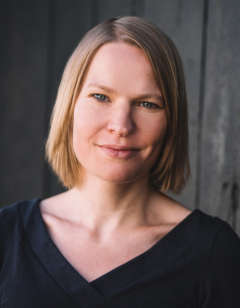
Research interests
I am interested in processes and their driving forces underlying past and present patterns of species distribution and diversity. My research has focused predominantly on the phylogeography of tarsiers, small nocturnal primates endemic to Southeast Asia. For this purpose, I conducted comprehensive field studies and phylogenetic analyses. Currently I am working in the infrastructure project BIOfid, a specialised information service for biodiversity research. This collaborative project between Senckenberg, the Text Technology Lab of the Goethe University Frankfurt and the J. C. Senckenberg University Library in Frankfurt aims to mobilise biodiversity data from legacy and contemporary scientific literature. My main task is the structured compilation and linking of biological, environmental and meta-information to support the development of new text mining tools for ontology-based semantic search in the BIOfid portal.
External links
My ResearchGate Profile
Visit BIOfid at ResearchGate
BIOfid homepage
CV [PDF]

